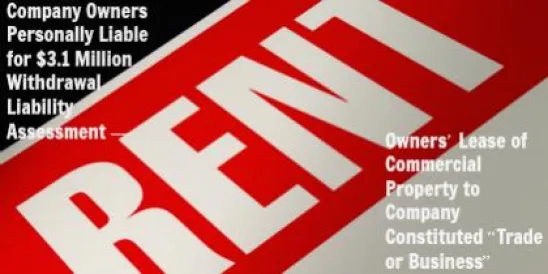As state and local governments act to address the economic fallout of the COVID-19 pandemic, relief for renters impacted by the coronavirus has come from both state and local policymakers. In previous posts, we covered San Francisco’s and San Diego’s efforts to temporarily ban evicting residential and commercial tenants impacted by COVID-19. In this post, we explain Governor Gavin Newsom’s Executive Order, issued on March 27, creating a statewide moratorium on evicting renters impacted by COVID-19. Here are key takeaways from the statewide Executive Order.
Overview
Most important, the Executive Order does not exempt tenants from paying rent. It merely grants a 60-day extension for qualifying tenants to respond to unlawful detainer complaints and prevents enforcement of eviction orders through May 31, 2020. The Order is effective immediately.
Extended Deadlines in Eviction Proceedings
Normally, after being served a with a summons in an eviction proceeding, a tenant must respond within five days. Governor Newsom’s Order extends the response deadline by 60 days[1] for tenants meeting the following criteria:
-
Prior to March 27, the tenant paid rent to the landlord under an agreement. In most cases, this will be a lease.
-
The tenant notifies the landlord in writing before rent is due or within a reasonable period of time afterwards (not exceeding 7 days) that the tenant must delay all or part of a rent payment due to “reasons related to COVID-19.”
-
Under the Executive Order, “reasons related to COVID-19” include, but are not limited to:
A. Inability to work due to a suspected or confirmed case of COVID-19 for the tenant or a tenant’s household or family member;
B. Inability to work due to a lay-off or loss of hours, or an income reduction resulting from COVID-19, the state of emergency, or related government response; or
C. Inability to work due to a need to care for a child whose school was closed in response to COVID-19.
- The tenant retains “verifiable documentation” explaining the tenant’s changed financial circumstances. Such documentation may include termination notices, payroll checks, pay stubs, bank statements, medical bills, or signed letters or statements from an employer or supervisor explaining the tenant’s changed financial circumstances.
Stay of Enforcement of Eviction Orders
In addition to extending a tenant’s deadline to respond to an eviction summons, the Order prohibits enforcement of any eviction order issued by a Court against any tenant meeting the requirements laid out above. This prohibition is effective immediately and applies so long as the Order remains in effect.
As you are aware, things are changing quickly and there is no clear-cut authority or bright line rules. This is not an unequivocal statement of the law; instead, it represents our best interpretation of where things currently stand. This article does not address the potential impacts of the numerous other local, state, and federal orders that have been issued in response to the COVID-19 pandemic.
FOOTNOTES
[1] The Order is unclear as to whether an impacted tenant must respond 60 or 65 days after service of the summons.




 />i
/>i

